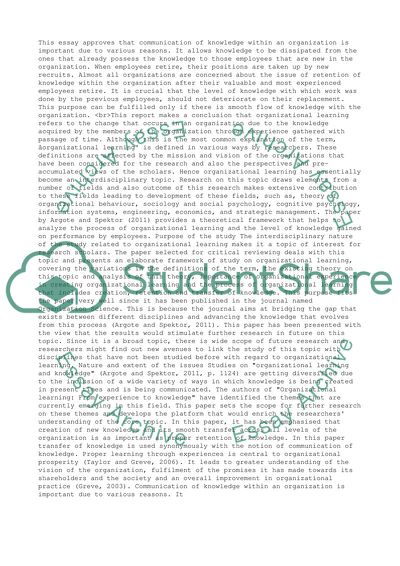Cite this document
(“The Impact of Organisational Learning on the Creation and Coursework”, n.d.)
Retrieved from https://studentshare.org/management/1482897-the-impact-of-organisational-learning-on-the-creation-and-communication-of-knowledge
Retrieved from https://studentshare.org/management/1482897-the-impact-of-organisational-learning-on-the-creation-and-communication-of-knowledge
(The Impact of Organisational Learning on the Creation and Coursework)
https://studentshare.org/management/1482897-the-impact-of-organisational-learning-on-the-creation-and-communication-of-knowledge.
https://studentshare.org/management/1482897-the-impact-of-organisational-learning-on-the-creation-and-communication-of-knowledge.
“The Impact of Organisational Learning on the Creation and Coursework”, n.d. https://studentshare.org/management/1482897-the-impact-of-organisational-learning-on-the-creation-and-communication-of-knowledge.


